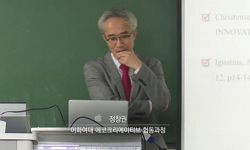Purpose: This article explores the evolution of practical global governance measures aimed at promoting public values in an anarchic (in the sense of without government) international operating environment. The process of international organization ha...
http://chineseinput.net/에서 pinyin(병음)방식으로 중국어를 변환할 수 있습니다.
변환된 중국어를 복사하여 사용하시면 됩니다.
- 中文 을 입력하시려면 zhongwen을 입력하시고 space를누르시면됩니다.
- 北京 을 입력하시려면 beijing을 입력하시고 space를 누르시면 됩니다.
https://www.riss.kr/link?id=A108631090
- 저자
- 발행기관
- 학술지명
- 권호사항
-
발행연도
2023
-
작성언어
-
- 주제어
-
KDC
338
-
자료형태
학술저널
-
수록면
1-10(10쪽)
- 제공처
-
0
상세조회 -
0
다운로드
부가정보
다국어 초록 (Multilingual Abstract)
Method: This research project used a qualitative approach consisting of literature review and document analysis. The results of this study should be supplemented by quantitative and qualitative studies in the future. The literature review consists of a comprehensive assessment of scholarly academic publications from competing perspectives in the fields of political and moral philosophy, public administration, and international relations. The document survey is mainly related to the policy documentation output of national governments and international organizations, as well as media reports.
Results: The research identifies how new practical challenges to established multilateral manifestations of international organization and the global normative aspirations of middle powers, as well as shortcomings of the more recent minilateral arrangements require radical out of the box thinking. Hence, new modalities and conceptualizations are proposed to address the challenges of public value provision through the process of international organization. These include non-traditional security minilaterals, regional international commissions, and a central role for the new conceptualization of “second-tier” powers.
Conclusion: Global public values are generated at the international level, in the absence of global government, through the process of international organization. Various models of practical manifestation of the related theoretical concepts have been proposed, and have been implemented, with varying degrees of success. In a time of increased great power contestation, however, multilateral institutions and middle powers, their chief proponents, have been undermined. The proliferation of minilaterals and minilateralism has proven to be an inadequate procedural replacement. Hence the need to explore additional agencies of “disruptive innovation.”
Purpose: This article explores the evolution of practical global governance measures aimed at promoting public values in an anarchic (in the sense of without government) international operating environment. The process of international organization has occupied a central position in the discourse, and the physical manifestations of various formal international organizations and informal institutions have provided practical experiments in policy implementation. From the starting point of the universal lowest common denominator of values generated by an overlapping consensus of competing epistemological traditions (that of avoiding interstate war), the process of international organization has gradually expanded to embrace non-traditional security public values. Middle powers have played a key role in the expansion of the global governance paradigm, and aspirations for more comprehensive public value generation. The centrality of multilateralism and the roles of middle powers have, however, increasingly come under pressure from the realities of great power contestation in the international operating environment. The relatively new “minilateral” manifestations of international organization are also demonstrated as coming up short when providing public value promotion. This article, therefore, asks and attempts to answer the central global governance question of how can public values be promoted in the international operating environment in the absence of a central governing authority?
Method: This research project used a qualitative approach consisting of literature review and document analysis. The results of this study should be supplemented by quantitative and qualitative studies in the future. The literature review consists of a comprehensive assessment of scholarly academic publications from competing perspectives in the fields of political and moral philosophy, public administration, and international relations. The document survey is mainly related to the policy documentation output of national governments and international organizations, as well as media reports.
Results: The research identifies how new practical challenges to established multilateral manifestations of international organization and the global normative aspirations of middle powers, as well as shortcomings of the more recent minilateral arrangements require radical out of the box thinking. Hence, new modalities and conceptualizations are proposed to address the challenges of public value provision through the process of international organization. These include non-traditional security minilaterals, regional international commissions, and a central role for the new conceptualization of “second-tier” powers.
Conclusion: Global public values are generated at the international level, in the absence of global government, through the process of international organization. Various models of practical manifestation of the related theoretical concepts have been proposed, and have been implemented, with varying degrees of success. In a time of increased great power contestation, however, multilateral institutions and middle powers, their chief proponents, have been undermined. The proliferation of minilaterals and minilateralism has proven to be an inadequate procedural replacement. Hence the need to explore additional agencies of “disruptive innovation.”
목차 (Table of Contents)
- 1. Introduction
- 2. International organization and multilateralism
- 3. The role of middle powers
- 4. From multilateralism to minilateralism
- 5. Minilateral shortcomings
- 1. Introduction
- 2. International organization and multilateralism
- 3. The role of middle powers
- 4. From multilateralism to minilateralism
- 5. Minilateral shortcomings
- 6. Disruptive innovation and second-tier actors
- 7. References
동일학술지(권/호) 다른 논문
-
Buddhist Values Impact on Private and Public Behaviors in Thailand: A Mixed Method Research
- 한국공공가치학회
- Chongyan Zhang(Chongyan Zhang)
- 2023
-
Teaching Young Children Values in a Multi-religious Secular Society
- 한국공공가치학회
- Wu Pinhui Sandra(Wu Pinhui Sandra )
- 2023
-
Review and Prospects of Proactive Administration in Republic of Korea’s Public Service Sector
- 한국공공가치학회
- Sangjung Park(Sangjung Park)
- 2023
-
Korea Army’s Value as a Way to Character Education for Military Personnel
- 한국공공가치학회
- Byongsam Jung(Byongsam Jung)
- 2023




 스콜라
스콜라






